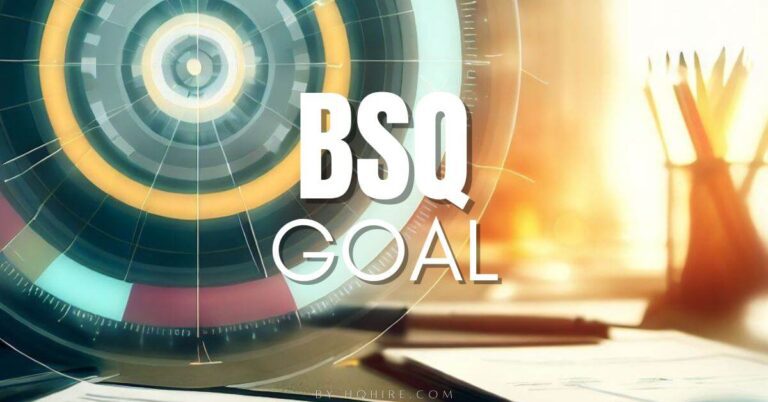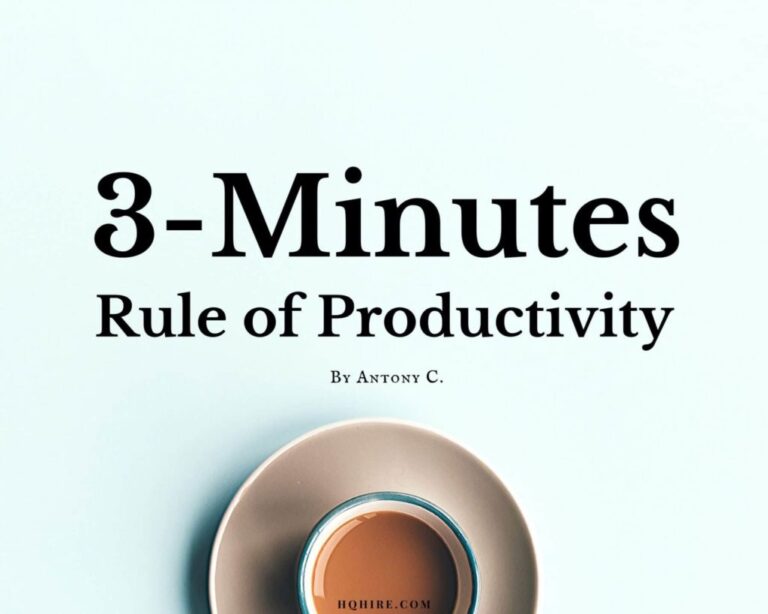Amount the many commonly asked questions, this one question that often trips up candidates is “How do you handle constructive criticism?” This interview question tests your ability to grow and adapt in the workplace.
A strong answer shows you’re open to feedback and can use it to improve your performance.

Answering this question well can set you apart from other candidates.
- Employers want to see that you can take criticism without getting defensive.
- They also want to know you can learn from mistakes and use feedback to get better at your job.
Ability to handle feedbacks shows you’re self-aware and committed to personal growth. These qualities are valuable in any role, from entry-level to management positions.
Key Takeaways
- Show openness to feedback and a willingness to improve
- Provide a specific example of using criticism to grow professionally
- Emphasize your ability to stay calm and view feedback as an opportunity
Why Do Employers Ask ‘How Do You Handle Constructive Criticism?’ During An Interview
Employers ask this question to learn about your ability to grow and improve. They want to see if you’re open to feedback and can use it to better yourself. The way you answer and how you answer will show how you might react to feedback on the job. It gives a glimpse into your professional development mindset.
Being able to take criticism well is a valuable skill in any workplace. It shows you’re:
- Flexible
- Self-aware
- Eager to learn
- A team player
Employers look for candidates who can turn feedback into positive change. Your response helps them gauge your potential for growth within their company.
Constructive criticism is meant to help you improve. Employers want to know you see it as an opportunity for growth, not as a personal attack.
Most importantly, this question also reveals how you might handle tough situations at work.
It gives insight into your problem-solving skills and emotional intelligence.
Common Variations Of ‘How Do You Handle Constructive Criticism?’

Interviewers often ask about handling feedback in different ways. Here are some common variations:
- “How do you respond to criticism?”
- “Tell me about a time you received negative feedback.”
- “What’s your approach to getting constructive feedback?”
These questions aim to understand your attitude towards growth and improvement.
Recruiters may ask how you handle constructive criticism or feedback. It’s important to show you value input from others.
Another way they might phrase it is: “How do you handle constructive criticism?” This directly asks about your reaction to feedback.
Some other variations include:
- “How do you deal with feedback you disagree with?”
- “Can you describe a situation where you applied criticism to improve?”
- “What’s the most helpful feedback you’ve ever received?”
Regardless, your answer should show you’re open to feedback and use it to grow professionally.
How To Answer “How Do You Handle Constructive Criticism?”

Answering this question well shows your openness to feedback and willingness to grow. Here’s a step-by-step approach to crafting a strong response.
Step 1: Have a Positive Growth Mindset
Start by showing you value constructive criticism. Express that you see it as a chance to improve.
You can say something like:”I appreciate constructive criticism. It helps me grow and get better at my job.”
This shows you have a growth mindset. It tells the interviewer you’re open to learning.
Step 2: Backup Your Claims With Examples
Give a real example of when you got feedback. Pick a time when you handled it well.
You might say:”Once, my manager told me my reports needed more detail. I thanked her for the input.”
This proves you’ve dealt with criticism before. It shows you can take feedback without getting upset.
Step 3: Explain The Actions You Take
Explain how you acted on the feedback. Show that you listened carefully and made changes.
For example: “I asked my manager for tips on improving my reports. Then, I started including more data and examples.”
This demonstrates your adaptability. It proves you use feedback to get better at your job.
Step 4: Show The Changes
Share the results of your changes. Talk about how you improved.
You could say: “After adding more detail, my reports became more useful. My team could make better decisions with the extra info.”
This shows the interviewer that you learn from feedback. It proves you can turn criticism into real growth.
Step 5: Your Commitment to Growth
Wrap up by talking about your ongoing commitment to growth. You might say: “I always try to learn from feedback. It helps me improve my skills and do better work.”
This ending shows you have a positive attitude about criticism. It tells the interviewer you’ll keep growing in your new role.
By following these steps, you’ll give a strong answer. You’ll show you’re open to feedback and ready to learn and improve.
Best Example Answers To ‘How Do You Handle Constructive Criticism?’

Strong answers to this question show your ability to learn and grow. They highlight your professionalism and commitment to improving your job performance.
Example Answer For A Recent Graduate
“I see constructive criticism as a chance to grow. In my recent internship, my supervisor pointed out areas where I could improve my report writing. I thanked her for the feedback and asked for specific examples. Then, I created a checklist based on her advice to use for future reports. This helped me deliver better work and impressed my team with my quick progress.”
This answer shows you’re eager to learn and take action. It demonstrates your ability to turn feedback into tangible improvements.
Example Answer For An Experienced Candidate
“Over the years, I’ve learned to value constructive criticism. In my last role, a colleague suggested I could improve my presentation skills. Instead of getting defensive, I thanked them for their insight. I then signed up for a public speaking course and practiced more before meetings. This not only boosted my confidence but also led to more engaging presentations for our clients.”
You show maturity and a growth mindset here. Your response highlights how you use feedback to enhance your professional skills.
Example Answer For Applying For A Leadership Position
“As a leader, I believe in both giving and receiving constructive criticism effectively. Recently, my team felt our project meetings weren’t productive. I listened carefully to their concerns without interrupting. Then, we brainstormed solutions together. We implemented a new meeting structure that increased efficiency by 30%. This experience reinforced the value of open communication and collaborative problem-solving in leadership.”
This answer shows your ability to handle criticism as a leader. It demonstrates how you use feedback to drive team improvements and foster a positive work environment.
Example Answer For An Industry Change
“Entering a new industry, I know I’ll face a learning curve. I welcome constructive criticism as a tool for quick adaptation. In my previous career switch, I actively sought feedback from experienced colleagues. When they pointed out areas for improvement, I took detailed notes and created a personal development plan. This approach helped me get up to speed quickly and become a valuable team member within months.”
Your answer shows you’re proactive about seeking and using feedback. It highlights your adaptability and eagerness to learn in new environments.
Example Answer For A Career Change
“Changing careers means embracing new challenges and learning opportunities. I view constructive criticism as a key part of this growth process. In my transition, I plan to keep an open mind and actively seek feedback from my new colleagues and supervisors. I’ll use the STAR method to track my progress and turn feedback into concrete improvements. This approach will help me adapt quickly and contribute effectively to my new field.”
This response shows your readiness to face the challenges of a career change. It demonstrates your proactive attitude towards personal and professional development.
Join over 11,000+ achievers who are committed to achieving their career goals!






![How to Write Resignation Letter by Email [Examples + Template] 10 How to write resignation letter by email. Examples and Template](https://hqhire.com/wp-content/uploads/2020/10/How-to-write-resignation-letter-by-email.-Examples-and-Template-768x402.png)